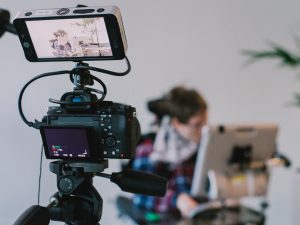Selecting the perfect camera is a pivotal decision that can significantly impact the quality and success of your project. The right camera choice can elevate your content, enhance production value, and streamline your creative process. However, the vast array of camera options available can make this decision overwhelming.
Budget Considerations
Before diving into the world of cameras, it’s crucial to establish a realistic budget for your video production. Your budget will serve as a guiding principle throughout the selection process. Different cameras come with varying price tags, so understanding the cost range of options available is essential. Balancing your budget constraints with the desired quality and features is the first step towards making the right choice for your project.
Purpose and Project Requirements
Every video project has a unique purpose and specific requirements. Whether you’re creating vlogs, producing documentaries, or shooting a cinematic masterpiece, your project’s goals should drive your camera selection. Tailoring your camera choice to your project’s demands, such as resolution, frame rate, and low-light performance, is crucial for achieving the desired outcome.
Camera Types and Formats
Cameras come in various types and formats, each with its advantages and disadvantages. Common options include DSLRs, mirrorless cameras, camcorders, and cinema cameras. Your choice should align with your project’s needs, ensuring you have the right tool for the job.
Sensor Size and Image Quality
Sensor size plays a significant role in determining image quality and depth of field. Options like full-frame, APS-C, and micro four-thirds sensors offer different advantages. Evaluating factors like dynamic range and color accuracy is essential to ensure your camera meets your project’s image quality requirements.
Lens Compatibility
Selecting the right lenses is as important as choosing the camera itself. Lenses play a crucial role in achieving your desired visual effects. Understanding lens options for your chosen camera system, including prime vs. zoom lenses, is vital to capturing the perfect shot.
Video Recording Features
Video recording features are paramount for video production. Consider aspects like 4K capability, frame rates, and codec options to match your project’s needs. Additionally, evaluate the camera’s ability to handle slow-motion, time-lapse, and high-speed recording, as well as in-camera stabilization for handheld shooting.
Low-Light Performance
Lighting conditions can vary widely in video production, so evaluating a camera’s low-light performance is essential. Factors like ISO range and noise performance come into play when shooting in challenging lighting situations. Ensure your camera choice aligns with your project’s expected lighting conditions.
Audio Capabilities
Audio quality is equally important in video production. Investigate the camera’s built-in microphone and audio input options. Consider whether external audio recording solutions are necessary and if your camera supports them.
Ergonomics and Portability
The ergonomics and portability of your camera are essential for your comfort during shoots. The camera’s size, weight, and form factor should match your shooting style. Additionally, explore accessories and rigging options to enhance usability.
Conclusion
Selecting the right camera for your video production project is a crucial decision that warrants careful consideration. By assessing your budget, project requirements, and the factors mentioned above, you can make an informed choice that ensures the success of your video project.



